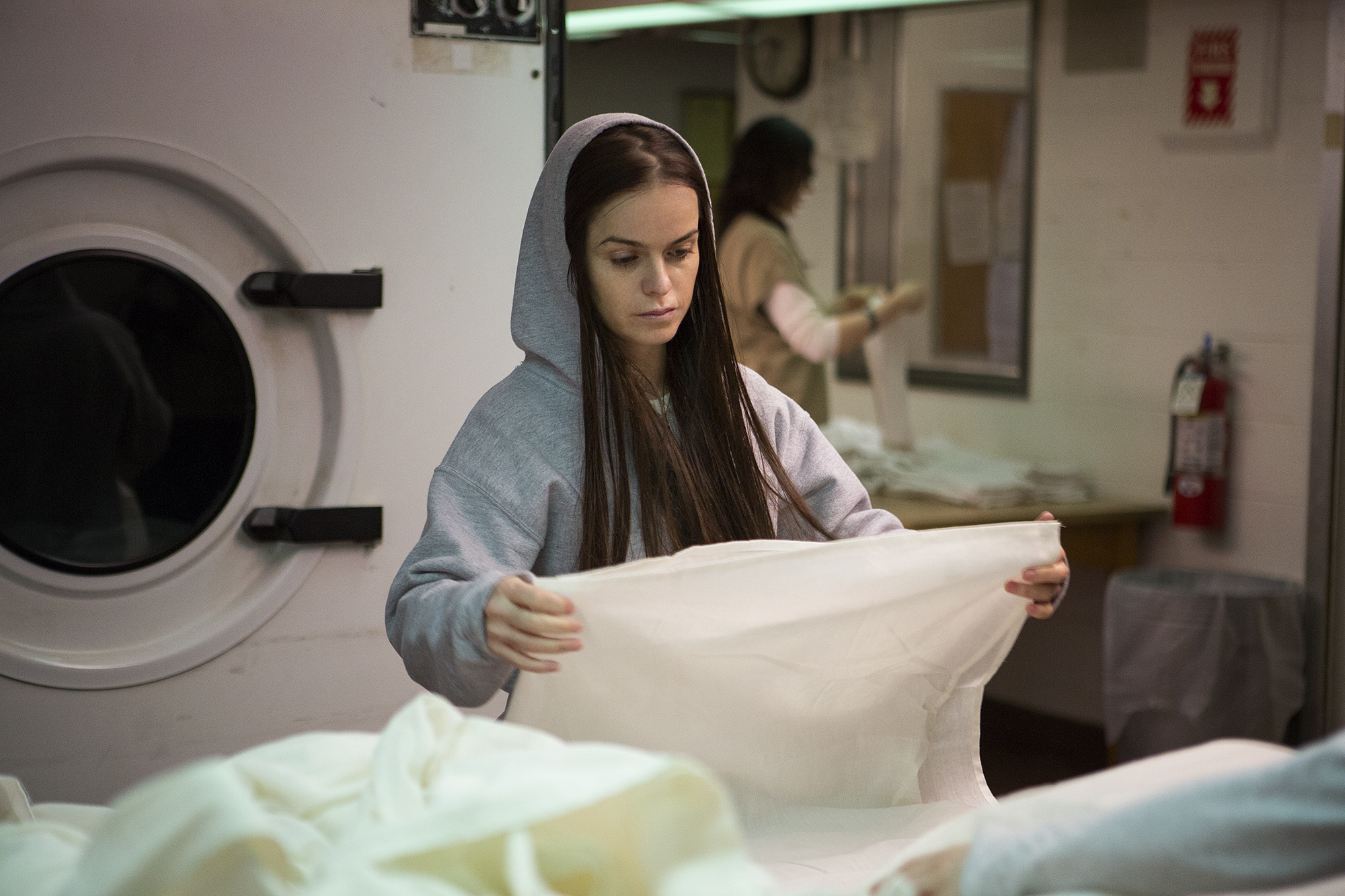'Orange is the New Black' Shows the Ugly Side Of Prison Jobs

By:
Netflix's beloved original "Orange is the New Black" debuted its third season to much excitement from fans late last week, with many binge watching the entire series in just a few short days.
The latest installments expose many powerful issues within America's approach to incarceration. Season three focuses on working life for inmates and how little prisoners earn at their jobs.
For the uninitiated, OITNB follows a dynamic group of female inmates as they serve their time in the fictional Litchfield Prison, a vague location in upstate New York. Towards the middle of the third season, the ladies hear that some top secret well-paying job opportunities will be coming to the facility soon and that they have to pass a test to be accepted. A flood of inmates come forward to take the exam, some so desperate to land better professional roles that they ask those around them for help or become visibly distressed about blowing their shot at success. The females who are ultimately chosen celebrate their capabilities and intelligence, but those in charge of the prison know the truth. The selected women were actually randomly picked to receive the new jobs.
The coveted jobs offer prisoners $1 an hour, nearly 10 times their current rate of 11 cents an hour. The women have high hopes that they will do something interesting, like working in a call center as one inmate suspects, but it turns out they are tasked with sewing panties and undergarments for an underwear company called Whispers. The disappointment overwhelms them, but outsiders who did not take or pass the test are envious that they missed their chance to pocket $1 per hour. They are stuck cooking in the kitchen or managing the often sweltering laundry room. Piper Chapman, the show's main character, decides to start her own underground business to pick up extra cash on the side.
 Lionsgate Publicity - lionsgatepublicity.com
Lionsgate Publicity - lionsgatepublicity.com
 Lionsgate Publicity - lionsgatepublicity.com
Lionsgate Publicity - lionsgatepublicity.com
OITNB highlights a major issue facing inmates: how to earn decent money and acquire professional skills that can serve them well when they finish their sentences. It's hard to get hired after leaving prison, and given the low pay inmates receive for prison jobs, they have to work for a very long time to save enough money for a good life in the real world.
They also need money in prison itself, as ATTN: has reported before that phone calls are very expensive for inmates:
Minimum wage in prison is 23 cents an hour and inmates can receive $1.15 per hour maximum. As The New Republic pointed out last year, America has the largest incarceration rate in the world with more than 2 million people behind bars. Nearly 20 percent of inmates in federal prisons work for the Federal Prison Industries, Inc. With so many prisoners in the system and many of them trying to find work during their sentences, others can easily exploit their services.
Several months ago, ATTN: interviewed Tyrone Hood, who spent 22 years in prison for a crime he never committed and said his prison earnings were quickly eaten up by prison services.
"I even got a job and half of that [$40 per month] I was making went right back into the system as postage, write-outs, copies of certain things," Hood said. "So I had a choice to either spend all of this money, the whole $10 at commissary, and just eat it and just forget about it and the process of my appeals, or even help attorneys that were working on my appeals. Even if I had to $2, I was determined to do that ... I mean people have donated money to me; relatives give me money, right? That’s not gonna last. That’s gonna run out. And it’s shrinking real fast, and it’s like I gotta stop the bleeding and get out here and do something."
In 2011, The New York Times reported that Florida inmates could save the state $2.4 million every year in farming costs. At the time, Florida had 550 inmates growing nearly 5 million pounds of produce annually.
Tom Petersik, who has extensively studied prison labor, told The New Republic that prisoners often aren't viewed as humans like the rest of the population, "The U.S. says that it’s a fundamental human right that everyone has a means of survival. And yet, we somehow believe that [prisoners] having access to no income is a good thing. When a fire is approaching our home, that guy sitting in a cell becomes our best friend. So you sit back and think, are we using these people effectively in the first place?"
